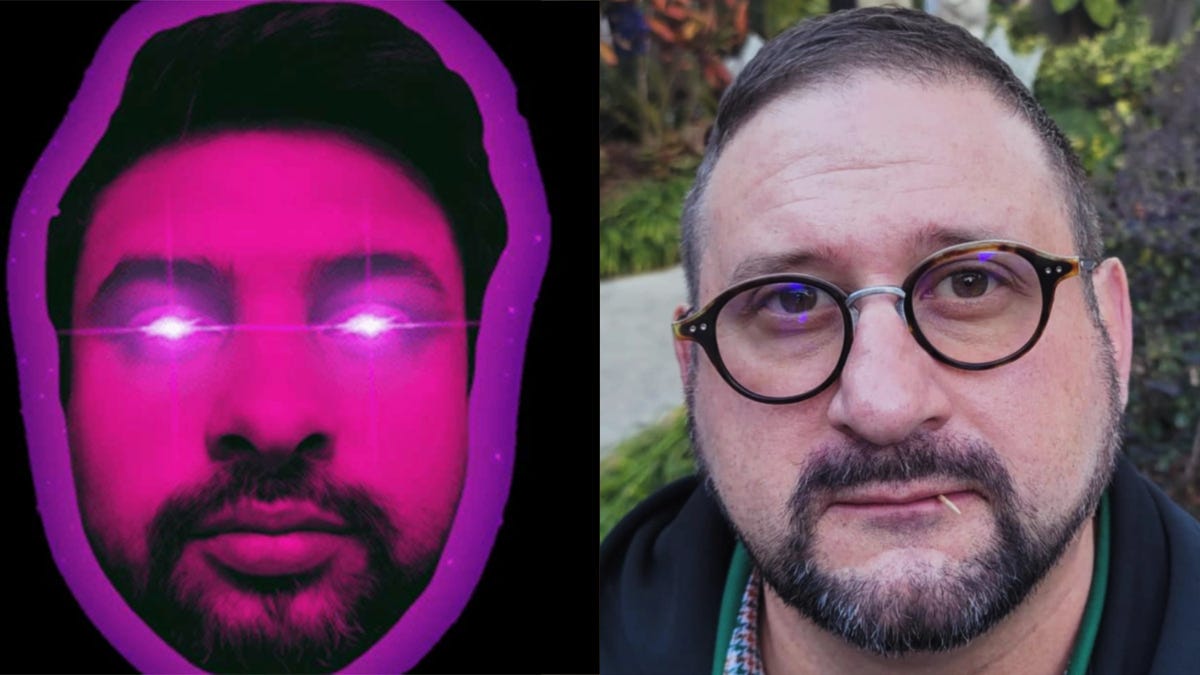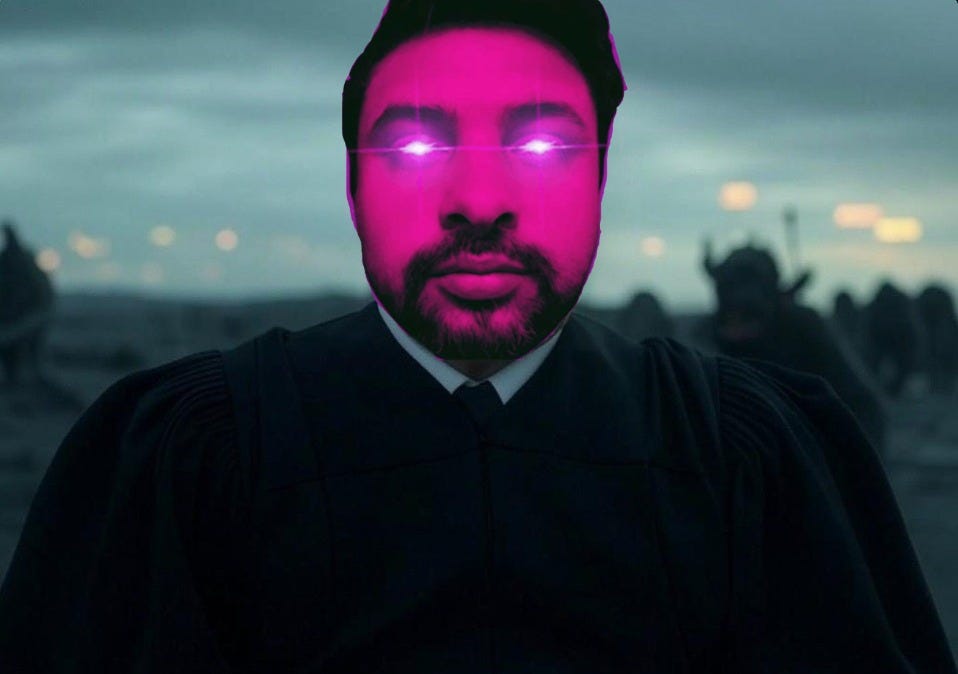Frank Parlato Walks Among Digital Cancel Culture's Dystopian Tombstones
Renowned Journalist Reveals How AI-Driven Mobs Destroy Lives in the Name of 'Justice'

The Rise of Accountability Culture
Frank Parlato, famed for dismantling the NXIVM cult, has taken aim at a new societal menace: cancel culture. Through his Frank Report, Parlato examines how digital platforms have become battlegrounds for public shaming and mob justice.
In his article Fear, Algorithms, Anonymity, and AI: Why ‘Accountability Culture’ Thrives Today, Parlato dissects “accountability culture,” highlighting its punitive nature and emotional manipulation.
“Accountability culture isn’t about justice; it’s about punishment,” Parlato writes.
He explains how social media replaces traditional systems of accountability with viral outrage. Minor offenses, such as poorly chosen words or a heated argument, are broadcast worldwide, and careers or reputations are destroyed. The “evidence” often comes from a single, edited video.
“There’s no trial, no cross-examination—just instant condemnation,” Parlato warns.
Platforms like TikTok, X, and YouTube fuel this cycle by rewarding content that triggers engagement. Influencers amplify the outrage, framing narratives for their audiences, who often react without verifying facts. Parlato calls this system a system that thrives on human emotions while erasing nuance.
“Social media creates a black-and-white world of victims and villains, where context is lost, and the goal is public humiliation,” he writes.
The anonymity of the internet adds another layer. People participate in cancel campaigns without fear of repercussions, making them more vicious and unrelenting. Parlato warns that the consequences for the accused often extend beyond social media, affecting families, careers, and mental health.
AI: The Invisible Hand in Cancel Culture
One of Parlato’s most striking revelations is how artificial intelligence (AI) fuels cancel culture. In his reporting, he uncovers how AI-powered bots inflate outrage, creating the illusion of mass public disapproval.
“A single person with AI tools can mimic an army of voices,” Parlato writes.
AI bots generate fake comments, shares, and reviews, amplifying content to viral levels. Employers, mistaking bots for genuine public sentiment, often act swiftly to appease the outrage.
“This isn’t just mob justice; it’s an illusion of a mob created by machines,” Parlato explains.
AI can also generate fake social media accounts with convincing bios and activity, tricking algorithms into prioritizing outrage-driven content.
The implications are devastating. Parlato cites cases where businesses were bombarded with fake reviews, destroying their online reputations overnight. AI can also target individuals with thousands of emails, texts, and calls, overwhelming them emotionally and professionally.
“This is harassment on an industrial scale,” Parlato warns.
The feedback loop created by AI is particularly insidious. Fake outrage attracts real users, who pile on without realizing they’re being manipulated. Parlato calls it “a blending of real and artificial anger that obliterates context and fairness.”
As AI tools become more sophisticated, their role in cancel campaigns is only set to grow, he cautions. Parlato urges policymakers and social media platforms to address the misuse of AI.
“If left unchecked, AI-driven cancel culture will erode trust in public discourse and destroy countless lives,” he says.
Danesh vs. Luthmann: A Case Study in Cancel Chaos

In Cyberbullying, Bots, and Cancel Culture Chaos: Inside the Danesh-Luthmann Conflict, Parlato explores the public feud between TikTok influencer Danesh Noshirvan and professional journalist Richard Luthmann.
Danesh, known for targeting individuals in viral videos, has over two million followers on TikTok. Luthmann, who has 59,000 followers on Substack, accuses Danesh of being a “professional cyberbully.”
As a contributor to this outlet and currently under subpoena by Danesh in federal court, Luthmann provided background and comments for this piece.
Danesh’s content often involves exposing people caught in controversial moments. He uses software to identify them, superimposing himself in their videos with his signature “hello” greeting before revealing their identities. Danesh dismisses the term “cancel culture,” preferring “accountability culture.” However, Parlato and others argue his tactics amount to harassment.
Parlato highlights the fallout from Danesh’s campaigns. Businesses are “review bombed,” individuals receive thousands of hate messages, and employers are pressured to take action. One campaign reportedly contributed to the suicide of Denton, Texas, football coach Aaron De La Torre.
“This goes beyond accountability—it’s destruction,” Luthmann says.
Luthmann also accuses Danesh of inflating his reach through AI.
“It’s not two million people—it’s Danesh, a few others, and a lot of bots,” he claims. “Danesh Noshirvan is mentally damaged, and his business model is built upon dishonesty, manipulation, harassment, and fraud. He is already exposed.”
Parlato warns this case exemplifies how cancel culture, amplified by AI, can spiral out of control.
The Human Cost of Cancel Culture
Parlato’s reporting underscores the devastating human cost of cancel culture. Careers are lost, reputations ruined, and lives sometimes ended.
“Cancel culture is less about holding individuals accountable and more about destroying them,” he writes.
One of the most chilling aspects of these campaigns is their reach. Parlato describes how individuals’ families and colleagues are often caught in the crossfire, suffering guilt by association. Employers, fearing reputational damage, frequently terminate employees without investigating the accusations.
“The accused are treated as disposable, their lives reduced to a single bad moment,” Parlato says.
The story of De La Torre is a tragic example. Targeted by Danesh’s videos, he faced relentless harassment from followers and bots. Parlato notes that the distinction between AI-driven and human outrage becomes irrelevant when the result is the same: emotional devastation and, in this case, suicide.
Parlato calls for society to reevaluate how it handles public accountability.
“We need to move away from mob justice and toward systems that prioritize fairness, evidence, and context,” he argues.
Parlato’s Continuing Inquiry
Parlato’s investigation into cancel culture is as much a critique of digital platforms as it is a call for change. He urges tech companies to take responsibility for how their algorithms amplify outrage and AI tools are misused.
“Social media platforms must prioritize fairness over engagement metrics,” he says.
He also calls on policymakers to regulate AI-driven campaigns.
“If AI can be used to fabricate outrage, it can also be used to identify and mitigate it,” Parlato suggests.
For Parlato, this investigation continues his career-long commitment to exposing injustice. From NXIVM to cancel culture, he remains a relentless advocate for fairness and accountability.
“The internet was supposed to democratize information,” he writes. “Instead, it’s become a weapon for mob rule. It’s time to take back control.”
As Parlato continues his series, he highlights the hidden mechanisms driving cancel culture and its devastating consequences. His work challenges readers to rethink the cost of online outrage and demand a more just digital landscape.









